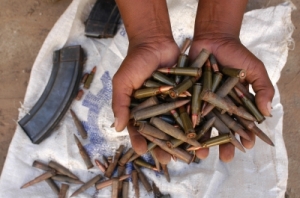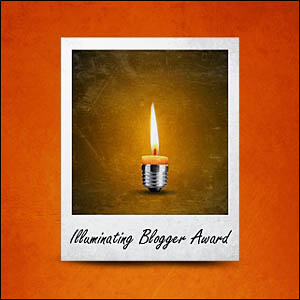There is a fascinating and disturbing article in Newsweek entitled, “Drones: How Obama Learned to Kill”. The article is long, but worth reading when you have a moment. It is excerpted from a new book, Kill or Capture: The War on Terror and the Soul of the Obama Presidency, written by Daniel Klaidman.
The book explores how President Obama’s thinking on anti-terrorism activities has evolved since he took office. Specifically, the book describes the decision-making process that the President and his top advisors go through before deciding to kill a terrorist target.
I have to admit that even writing these words makes me uncomfortable. I am a pacifist at heart and feel a strong urge to ignore the realities of what happens outside of our bordersin the name of keeping us safe.
I can only imagine the heavy burden placed on a President and his top military officials when forced to make a decision like this. Some striking excerpts from the book that help me better understand the complexities of what these officials deal with:
The president is not a robotic killing machine. The choices he faces are brutally difficult, and he has struggled with them—sometimes turning them over in his mind again and again. The people around him have also battled and disagreed. They’ve invoked the safety of America on the one hand and the righteousness of what America stands for on the other.
If there is a person in the camp who is a clear threat to the United States we should go after him. But carpet bombing a country is a really bad precedent.
…both men were grappling with the same reality: their advice could ensure death for strangers who lived thousands of miles away—or spare them.
I really struggle with this. I realize that there are people whose sole aim in life is to harm the United States for a wide variety of reasons. From the comfort of my home I cannot fully condemn the activities of leaders who have willingly taken on the responsibility and are doing their best to grapple with the difficult choices to keep us safe.
I also know that when George W. Bush was President, I was probably much less willing to explore this issue and more willing to cast stones.
But I have to wonder if there is a better way to keep us safe. Of course, I believe that promoting economic and democratic stability around the globe is one of the best ways to lessen vicious animosity towards the United States. But I also wonder if there aren’t more opportunities to use the legal system to bring people to justice.
I understand that this is extremely complex and that a protracted court case could actually exacerbate the risk.
I clearly don’t have the answers to this complex problem and I realize that I probably come from an idealistically naive perspective. Of course, I never do have the answers in this blog, which is why I always ask…
What do you think? How do you feel about the recent killings inflicted by the United States on terrorist suspects? Do you think there is a better way to keep us safe? What does that better way look like? Do you think that President Obama is going to suffer any legal consequences for his actions? Should he? Do you feel conflicted about this issue like I do?
I would love to hear your thoughts. Thanks so much for reading.














“But carpet bombing a country is a really bad precedent.” That sentence gives me chills! A “bad precedent”?? I agree with you that these people must make decisions that I could never make, but if this is typical of their thinking (and I suspect it is), Heaven help us.
I know. It was a fascinating and disturbing look behind the curtain. I don’t know what the response has been to this book, but it could be interesting. I would be interested to hear what my military friends think about this. I really struggle with it myself. Thanks for reading! Excellent post today, by the way. Such a timely issue. I always read your’s first thing while I am walking my dog! 🙂
Thank you for the kind words. I also seek yours out!
🙂 Just being honest!
With such a tough subject, I am at least comforted that our leaders struggle with the issue. I read where Obama actually went against the advice of his Secretary of Defense and Chief of Staff to do a raid to get Osama Bin Laden. They had wanted to do an air attack. The drone bombing makes things too clinical and easy to deploy. This President’s strongest suit is he solicits input and listens. Nonetheless, I would prefer a peaceful resolution whenever we can do so.
That is just how I feel. And I certainly do not envy the responsibility they have on their shoulders to make these kinds of life and death decisions.
It’s a double edged sword, there are no winners in war. Held responsible..no. The responsibility list is very long, but Obama’s name is at the bottom. His strong suit is compromise, talking and listening. When you use these tools solutions o not happen over night, nor should they considering the topic of conversation. Our country has become a nation of instant gratification..dropping bombs are the “quick fix” ..but we all know that’s not the “best fix”. Great post…good for the brain today.
I think I’m with you on that. But you never know what people who want to do Obama in might try. I am grateful to see some of the thoughtful discussions that happen around this. It is just disturbing, but maybe necessary. Thanks for reading and thinking about it with me.
Tough questions. I’m glad I don’t have to make those decisions. Does that mean I’m copping out? Does that mean my hands are clean??
Exactly my questions which lead to my discomfort. Thanks for helping think through it with me. It just really struck me today as something we should be aware of and talking about. Thanks for reading and for your comment!!
Pingback: Drone strikes: what have they accomplished? « Ecopolitical Economics
Pingback: Introducing Friday Pick « talktodiana
I think there are other ways too — but it’s getting to them through our path of destruction that is the challenge. How do we undo centuries of killing to find peace?
Like Diana said — I’m glad I’m not the one who has to make the decision. But, when I cast my vote, I am taking part in the decision — and agree strongly, we need to be part of the conversation, part of the exploration of alternative paths to peace.
There was a time when I liked to think that as a Canadian, I wasn’t sullied by the US and its war machine. But seriously — that thinking keeps me in the war zone, because in that thinking is the ‘it’s not me/it’s them’ pattern of believing I’m not involved.
Perhaps when we all decide we are all involved and that it isn’t a stranger being killed on the other side of the world, but rather, one of our family, we will start finding ways to stop killing each other.
Thanks for starting a very important conversation. I hope it continues.
Thank YOU for your thoughtful comment. You are so right. As uncomfortable as it is to recognize that we are involved, it is the only way to impact those decisions. And then we can consciously choose to engage more fully in the process. Thanks so much for your comment.
You are absolutely on the money there Louise. I hope it doesn’t come to losing someone close to us though, sadly that’s often what wakes us up.
Ah, being behind the scenes! Many would have various opinions on how they would handle such extreme circumstances, but honestly do not have no clue on the such matters. Respectfully, our Leaders have such hard decisions to make and some times these decisions are not what we would like them to make. Thus, why we should continuously pray for our Leaders when having to make such decisions and for those who serve our nation’s military forces on a daily basis!
Sorry for the double negative phrase…’honestly do not have no clue…’! 🙂
No worries. I knew what you meant. Besides, this is a blog, not the Harvard Business Journal. Please excuse typos and poor grammar in my posts. 😉
🙂
Well said! I know I wouldn’t want to be the one faced with making these decisions. Thanks so much for your comment.
You’re welcome! Have a great weekend!
I have been following the responses to this blog and was intrigued by the initial blog itself. I must admit I have some serious problems with the drones and the upgrade in the fight on terror. It’s not just self-interest, though I worry about repercussions. It’s also about the loss of innocent life. And, yes, I know the leaders have difficult decisions to make. But has morality gone completely out the door? Where do we go from here?
I agree with you and am personally torn about this. I think it is important to try to stay informed about this and not ignore that this is happening in our names with our tax dollars. And I do think there are other ways to avoid killing most of the time. And as I say in the post, I am a pacifist at heart. I guess the big question is, is killing a person ever justified?
No. At some point it is no longer a question of justification. It becomes a question of reconciliation: how do we reconcile ourselves to the fact that our country is doing something that simply cannot be justified? Dostoevsky’s answer is (by implication) through love. Or is that too pat?
I don’t know. What is the practical application of that perspective? I understand that we need to use the legal system more, and I am afraid we have become desensitized to the killing. But how do you step back from where we are now on this issue?
As you probably know, I am a big fan of Dostoevsky. If he says something, I listen. I gather the practical aspect of his advice is this: there’s not a damned thing we can do about Obama’s war on terror policies (except abhor them), therefore we should try to put that out of our minds and love those whose lives we touch and who are affected by our presence in their world.
Any response to terrorism has it repercussions and most likely have loss of innocent life. For some reason, your question about morality reminds me of a reading about Kantian Ethics (way back in high school :)). I would hope that the decisions our Leaders make were done with some degree of morality or ethics. Where from here? We continue to share our concerns and passion on such topics with others. Thus, creating a difference not just in our communities, locally, nationally, and internationally!
Well said. Judging from the responses to Jennifer’s blog, this is a good start!
This was a wonderful read! Thank you! I enjoyed your posts as well…reading some now! Thus, the beauty of our communities. 🙂
Wow, I went to take a short nap and you and Hugh worked out all the problems! The beauty of the blogosphere. 😉 I think you are right, Hugh. We can only control what we can control. And at the same time, we need to stay informed about what our leaders are doing in our names and speak up when we disagree. Which I know we are both good at doing. 🙂 Thanks for helping think this though – it is not easy, but it helps to see how others think about these things. Hope you’re both having a good weekend!
I hope you had an enjoyable nap. Ditto on the weekend wish!
Ditto. Ditto. (Double Ditto!)
Do you write/have any other blogs or have any plans for another blog?
Currently it sounds like BlogEngine is the top blogging platform available right now.
(from what I’ve read) Is that what you’re using on your blog?